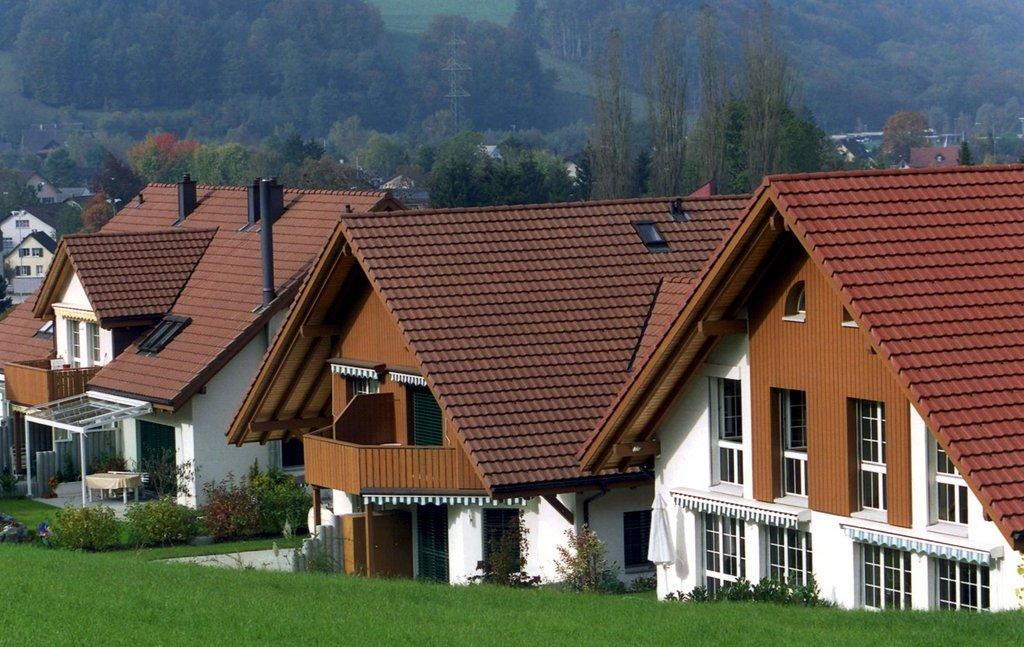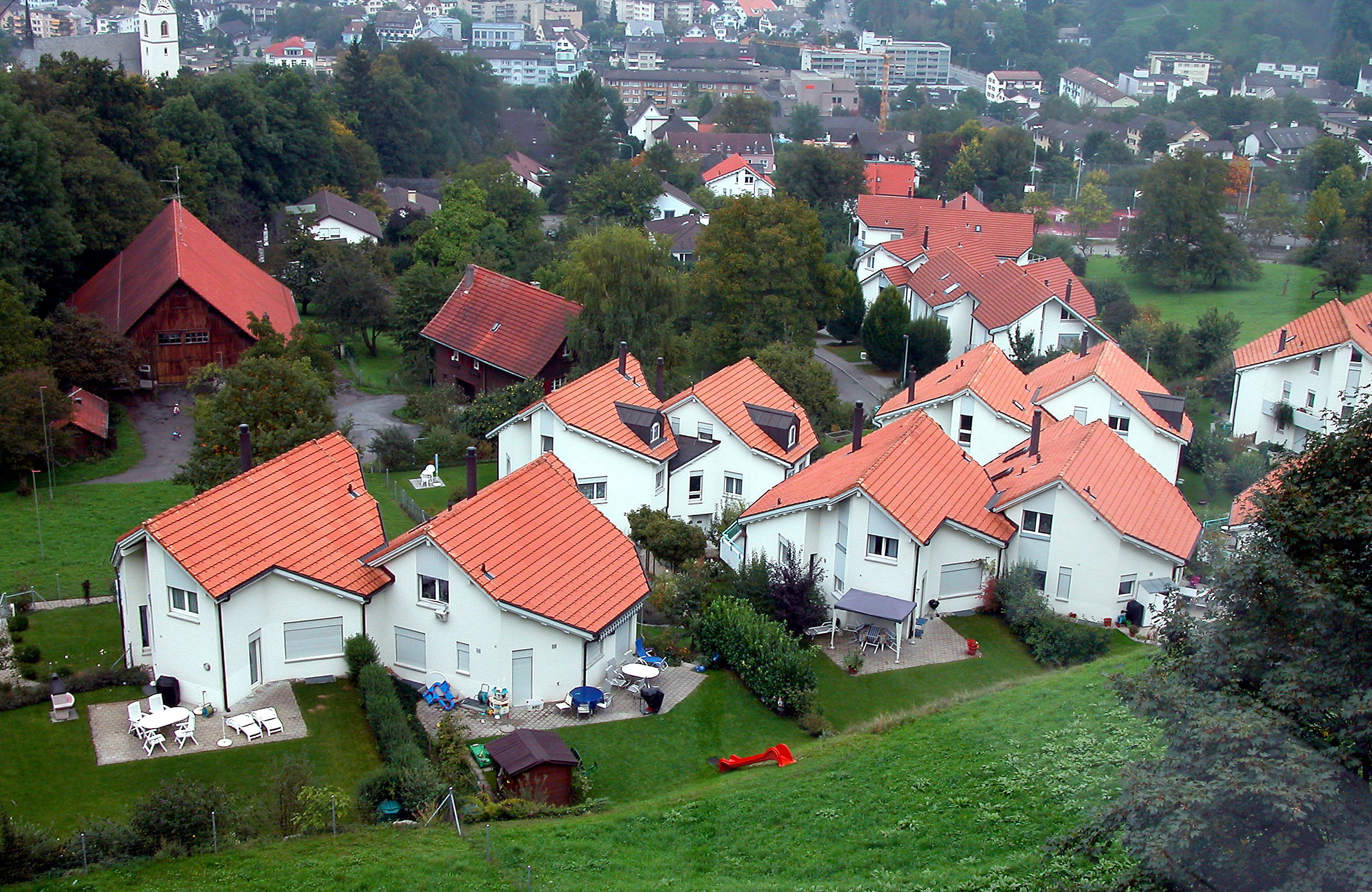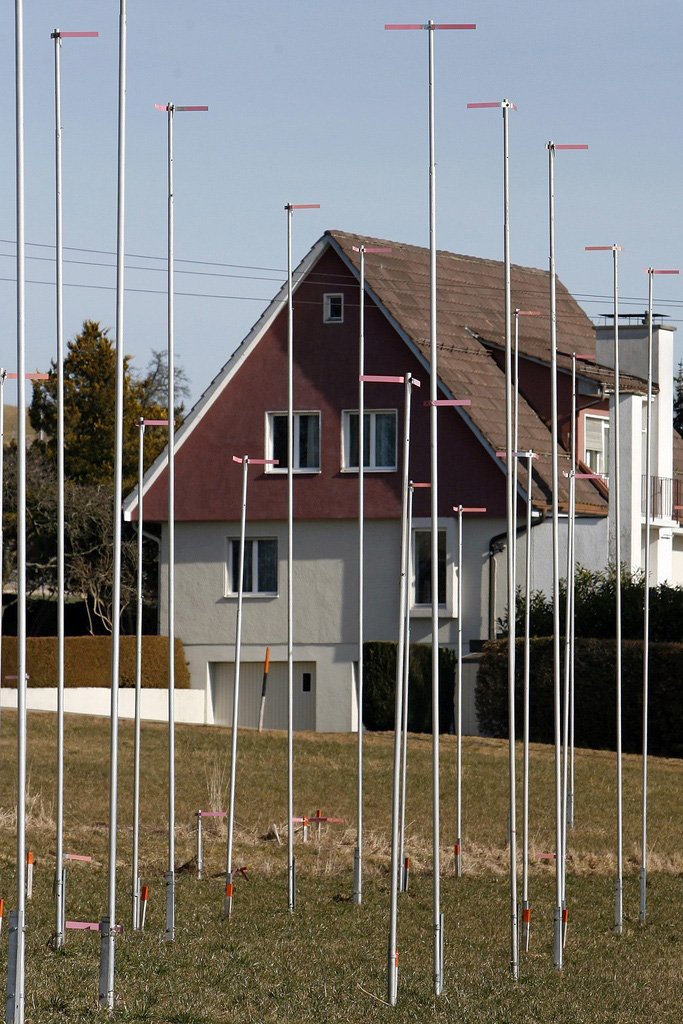Home owners and tenants wary of reform plans

It is a Swiss peculiarity that home owners who live in their property are subject to an additional tax as if they were renting it out. Attempts to do away with the so-called notional rental value of self-occupied homes have failed in the past despite international pressure.
Most notably, the Organisation for Economic Co-operation and DevelopmentExternal link (OECD) has repeatedly recommended that Switzerland abolishes this tax, which is seen as an important contributor to a high amount of consumer debt compared with other countries.
At a domestic level, opponents also argue that the notional value rental value of property is an artificial and unfair tax burden for home owners.
In their annual tax forms, home owners must indicate the presumed notional value of properties that are not even rented out. This fictitious amount is the equivalent of the payment they would receive from a tenant of the property. Their taxable income is inflated as a result.
The system was introduced during the First World War as the government looked for additional revenue to make up for flagging customs duties during the international conflict.
At the time the measure was considered an interim measure, but it was extended several times until 1958 when it was enshrined in law.
More equality
The aim of the presumed notional rental value was to create more equality among taxpayers as tenants can’t claim tax deductions for rental payments. This puts them at a disadvantage to wealthier citizens who can afford to buy their own homes.
Home owners for their part can deduct both mortgage interest payments owed to their banks as well as the costs for maintenance or renovation of the property they live in.
Depending on the individual situation of a home owner, it can be argued that the notional rental value is – or is not – an additional tax burden. This may seem confusing so here are two examples of winners and losers to help understand the current system.
Older home owners have generally paid off their mortgage and often have no plans for major building renovations. This means they have no expenses to offset against their tax bill.
The case is very different for home owners who must still pay interest on borrowed capital or plan refurbishment. They can save taxes if interest payments or the cost of renovation are higher than the notional rental value.
Controversy
Discussions about a potential abolishment of the presumed notional rental value have cropped up regularly over the years. It has been said that it is unfair to increase the tax burden of home owners by adding a non-existent income.
Other critics say such a system encourages home owners to run up even higher debts because the tax system discourages them from paying off their mortgage. This can be critical in Switzerland as it ranks among the countries with the highest per capita debt.
Previous attempts to find a viable solution have failed both in parliament and at the ballot box. A people’s initiative to do away with presumed notional rental value for retired citizens was rejected in 2012.
A Senate committee recently presented a new proposal, considered more balanced and including several options. But it is limited in scope and excludes holiday homes.
A key factor for a successful reform is to find a balanced solution and to avoid granting home owners a financial advantage over the majority of people living in rented accommodation – more than 60% according to official data.
Carlo Sommaruga, parliamentarian for the leftwing Social Democratic Party and president of a tenants organisation in French-speaking SwitzerlandExternal link, has already made it clear that he will not hesitate to challenge a parliamentary decision deemed unfavourable for tenants with a nationwide vote.
This is an indication how difficult it will be to find a solution for a reform of the presumed notional rental value. It’s inevitable there will be winners but also losers at the end of the political debate.
For the time being, the Senate committee has sent its proposals to consultation among political parties, institutions and organisations. Based on the reactions, parliament will discuss the proposals and voters might have the final say at a later stage following an undoubtedly lively public debate.

More
Homeowners sitting on a mountain of debt
Adapted from French/urs

In compliance with the JTI standards
More: SWI swissinfo.ch certified by the Journalism Trust Initiative













You can find an overview of ongoing debates with our journalists here . Please join us!
If you want to start a conversation about a topic raised in this article or want to report factual errors, email us at english@swissinfo.ch.